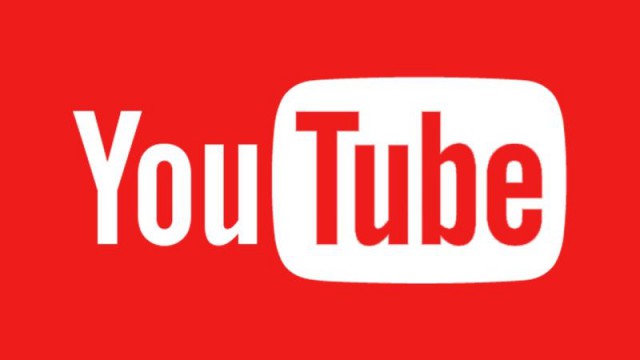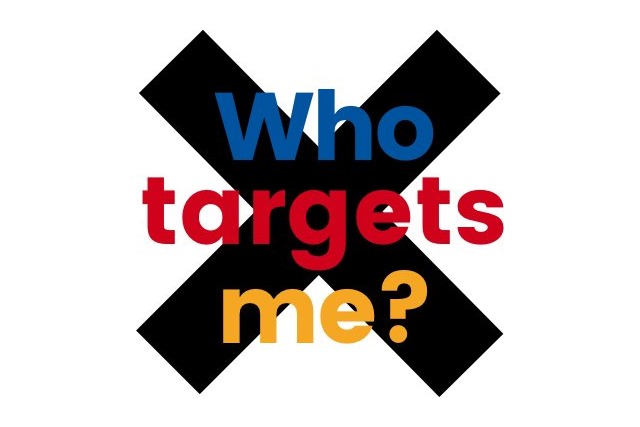
Now ads are coming to Facebook Messenger in global beta test
Following a more limited testing phase in Thailand and Australia, Facebook is rolling out ads globally in Facebook Messenger. The beta program is being extended meaning that Facebook is now able to target Messenger's 1.2 billion monthly users.
When users click or tap an ad in Messenger, they will either be transported to the advertiser's website, or taken to a chat with the company in question. Facebook's latest ad drive is the company's attempt to squeeze money from its Messenger platform.

Amazon adds more Android 'Prime Exclusive Phones' from Nokia, Motorola, and Alcatel
Some people don't like advertisements, but I do. They are a great way to learn about new products while also helping to pay for "free" content. People think I am crazy when I say this, but many times I don't bother fast-forwarding commercials when watching my DVR. Heck, in 2017, there is so much great content that is subsidized by ads, such as news articles, YouTube videos, and of course, both television and radio. If it weren't for advertisements, you would probably be "nickle-and-dimed" at every turn.
A great example of advertisements helping consumers is Amazon's 'Prime Exclusive Phones' program. The consumer gets a discount on the smartphone by agreeing to see ads on the device's lock screen. It is not forced on the buyer -- they get to choose if it is worth it to them. It actually empowers the consumer. Today, Amazon is introducing five more handsets into the scheme from Motorola, Alcatel, and for the first time, Nokia.

Google to finally stop scanning Gmail messages
Somewhat controversially, Google has always scanned messages in Gmail in order to be able to present users with relevant, personalized adverts based on the email content. That’s something that has always worried people who are concerned with what personal information the company might be gleaning from their inboxes.
In a surprise announcement, the search giant today declares its intention to end the long-standing policy.

UK consumers want an end to misleading 'fibre' broadband advertising
Using the word 'fibre' to describe broadband services which are partly delivered using copper cable is misleading consumers according to the UK's Advertising Standards Authority (ASA).
Conducted by specialist research agency Opinion Leader, using focus groups and in depth interviews with residential and business broadband users, the research shows that adverts using the word fibre don't enable people to make an informed choice.

Adobe Advertising Cloud TV to deliver highly targeted TV ads
Since the dawn of time, watching TV has always been an exercise in patience and frustration. Just as you're beginning to enjoy the unfolding storyline in your favorite shows or movies, they are interrupted by a series of commercials that you most likely are not going to find useful or interesting.
That has been starting to change over the past few years as the entire advertising landscape has undergone massive paradigm shifts, but there's still a lot of work to be done in the prehistoric landscape that is traditional TV ad buying. Enter Adobe.

YouTube defines 'hate speech' and clarifies which videos can earn money through ads
It has been a few weeks since advertisers started to pull out of YouTube after concern about the placement of ads. Since then, the company has been scrambling to earn back trust and it says it has "held thousands of productive conversations with advertisers, and implemented additional controls to restore advertiser confidence."
Now YouTube has set out what it classifies as hate speech, and says that any content that falls into this category will not be eligible for monetization. It's a move that's designed to calm the fears of advertisers, but there is concern that the rules being put in place are now too strict and could affect the incomes of large numbers of YouTubers.

Google is building an ad blocker into Chrome in 2018
Starting early next year, Chrome users will benefit from an ad blocker built into the web browser. As part of its work with the Coalition for Better Ads, Google is looking to clamp down on intrusive ads that web users find most irritating.
Google is a company whose business model is built largely on advertising, and it is keen for the experience of being subjected to ads to be as painless as possible for people. But rather than block all ads -- killing revenue streams for many websites -- Google wants to block only those that do not comply with Better Ads Standards.

New free plugin filters bot data from Google Analytics
Google's own bot filtering catches only a small percentage of the bot traffic that hits most sites, leading to traffic analysis data being skewed.
Bot detection specialist Distil Networks is launching a free tool designed to remove the bad data created by bots.

Updated BBC Privacy and Cookies Policy reveals targeted social advertising, and data sharing with TV Licensing
Just a few days ago, the BBC revealed that it was planning to introduce password checks for iPlayer users so it could ensure that a valid TV license is in place. Following on from this, the corporation has updated its Privacy and Cookies Policy.
The changes mean that personal information is shared with TV Licensing to check whether individuals have paid for a license. The BBC also says that it will use the personal data it collects to deliver "relevant advertising" on the likes of Facebook, Twitter and Instagram.

Facebook cleans up News Feeds by reducing links to 'low quality', clickbait content
When it's not being accused of being used for propaganda or peddling fake news, Facebook is often criticized for being home to meaningless clickbait that exists only to generate ad revenue. As part of an on-going drive to make people's News Feeds more useful and pleasant to use, the social network is clamping down on what it refers to as "links to low-quality web page experiences."
Facebook wants to cut back on content that is "misleading, sensational and spammy" and links to web pages that contain "little substantive content and that is covered in disruptive, shocking or malicious ads." Starting right now, you should start to see fewer of these links.

Facebook uses newspaper ads to warn about fake news and gives tips to help spot it
Facebook's fight against fake news has been taken to the printed press. The social networking giant has taken out a series of ads in UK newspapers giving tips about how to spot fake news. The ad campaign comes as Brits prepare to go to the polls and vote in the snap General Election in a month's time.
The issue of fake news really came to prominence in the run up to the US election, and research has shown that Facebook has become a tool that is used as part of campaigning to spread propaganda. In addition to the print ads, Facebook has also closed down thousands of UK accounts and is also expanding its automated system for spotting fake news to the UK.

Marketers can't afford to ignore YouTube stars
YouTube offers businesses the ability to connect meaningfully with their audience and build an engaged base of customers and prospects. The video sharing website has never been more popular. Today, over three billion hours of videos are watched per month, with an additional 300 hours of videos being added each minute. Yet, out of all the videos uploaded to YouTube, only a very small percentage generate more than a few hundred views; and only an elite few of those ultimately end up going viral. However, when done right, uploading videos can be big business. And not just for traditional organizations.
The number of channels earning six figures each year on YouTube is increasing by 50 percent year on year. According to a 2014 Variety survey, the stars of YouTube’s most popular channels, such as Swede Felix Kjellberg’s PewDiePie and Germán Aranis’ HolaSoyGerman, are now more influential and popular than mainstream celebrities among teenagers, so they need to be taken seriously by marketers.

Advertisers need to keep an eye on gamers to reach new audiences
It’s time to stuff the stereotypes. For too long in the minds of too many, gaming has been thought of as a sub-culture populated by teenage boys sitting indoors and playing shoot ‘em ups on either a console or computer.
The statistics to disprove this have been around for a long time -- the average age of a US games buyer was 36 last year and women make up more than 40 percent of gamers. Nearly two-thirds of US households contain at least one frequent gamer. Staggering stats that make it hard to pinpoint who the "typical" gamer is -- because there isn’t one anymore.

Is a Google-made Chrome ad-blocker the answer to intrusive advertising?
In case you missed it, rumors are rife that Google will soon introduce an ad blocker in Chrome. Understandably, there's concern about the power that would give Google over the advertising industry and its competition. As a member of said competition, I am equal parts concerned and supportive of an ad blocker in Chrome.
It’s certainly an interesting story. On first thought it’s a little ironic, in that a company which makes a large proportion of its money through advertising revenue is not only giving users of its browser the ability to block ads from appearing, but turning it on by default too. If the rumor is true, the addition of an ad blocker in Chrome could limit the reach of ads to over half of the world’s internet users overnight. That’s a big change, and in many instances it’s needed.

Chrome extension Who Targets Me? reveals how Facebook is used for election propaganda
Social media is powerful, so it's really little wonder that the likes of Facebook are used for propaganda. We already know that advertising can be very carefully targeted for maximum impact, and this can prove important when it comes to getting across a political message.
With the UK on the verge of an early general election -- one that will be fought with Brexit and Scottish Independence looming large -- political campaigns are getting underway, including on Facebook. To help educate voters about how they are being besieged by political parties, a free Chrome extension called Who Targets Me? has been launched. It reveals just how personal information made available on the social network is used.
